How can a bank tell you when you've got a water leak?
The smartphone revolution is coming to your cash
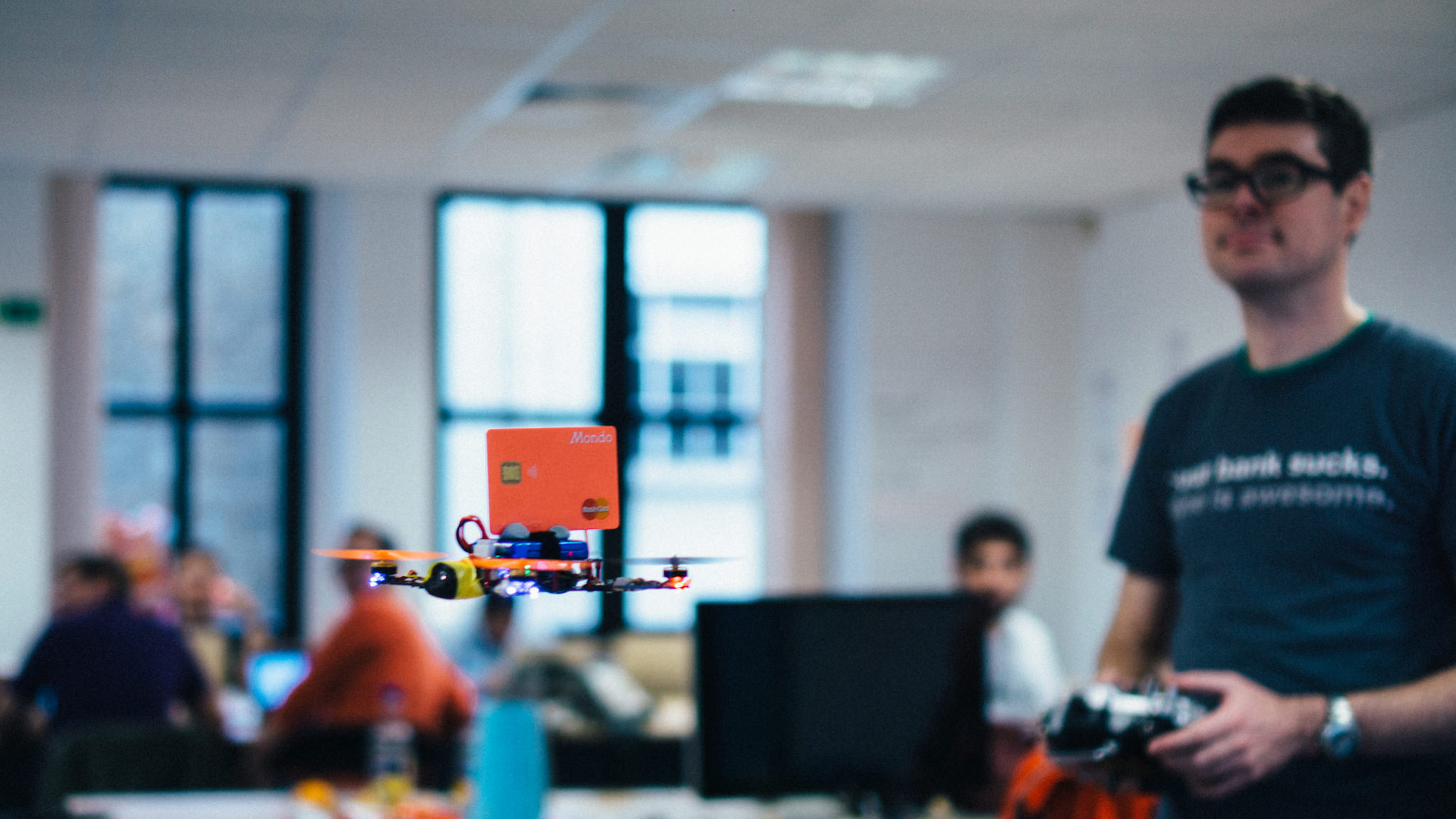
Sign up for breaking news, reviews, opinion, top tech deals, and more.
You are now subscribed
Your newsletter sign-up was successful
Think about your bank for a moment, and all the cool, innovative things it does. Not coming up with much other than 'it's got an app and I don't have to use that keypad thing anymore?'
It's not surprising. A bank is an institution that's thrived on being dependable, a safe haven for your cash. But we live in increasingly fluid times when it comes to privacy and on-demand content - so why hasn't banking caught up with the smartphone revolution yet?
You're probably horrified at the thought, instantly panicking about hacking and security and losing your phone and those terrible people that have scanners in their bags. But much like Netflix consumed Blockbusters, banks in the future will have to be all about the digital age or start losing customers - and this change seems about to appear.
Welcome to the world of 'challenger banks' - a new breed of financial institutions for the average consumer that will start popping up in the next few years thanks to recent relaxations in getting a banking license in the UK.
I spoke to James Nicholson, lead app engineer for one such challenger called Mondo, who believes real change is coming. Before Metro Bank launched in 2010, there hadn't had a new bank in the UK for over 150 years, such was the difficulty in taking on the established brands... but that could be about to change dramatically.
Bank to the future
Mondo definitely isn't banking the way you'll be used to. It's smartphone first, meaning it does things simply and in a way that just seems to make sense. Transactions ping onto your phone the second they're made, you can append receipt images, check out the location of your transaction - all the things that, once you see, you can't believe aren't part of every banking app.
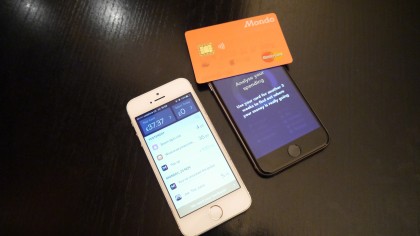
When you hear Nicholson's sales pitch for this new bank, it feels like it's designed for millenials used to on-demand content, and the lack of questioning which bank I use, of the status quo, suddenly makes me feel rather ashamed.
Sign up for breaking news, reviews, opinion, top tech deals, and more.
The new service is completely based in an app that freezes a card with a tap (quite literally, icing up on your smartphone screen) should you misplace it, with a simple poke again to reactivate when you find it in that pair of jeans you wore at the weekend.
Your bank gathers so much data on your spending habits, but doesn't turn that around to work for you, something Mondo wants to change.
Its mission statement is that banking should be easy, a service that's transparent and isn't trying to convince you that every misstep should be penalised, a service that can use the reams of data flying in and out of your phone to save you cash.
"As Mondo customers spend over time, and once we have our banking licence to become a full current account bank, there will be stuff like 'Your water bill is unusually high, maybe you've sprung a leak?' or 'You forgot to tap out on the underground – tap here to get a refund from TfL,'" says Nicholson.
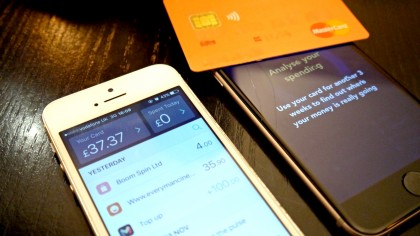
There's a lot we consider immobile in the banking world: overseas charges, penalties for going overdrawn or having a cheque bounce. Mondo (and others) want to change that and disrupt the market.
But Nicholson goes even further, pointing out that banks aren't making use of the staggering amount of technology we carry around. "If we're both in London, great; if I'm in NY and my card is used in China, don't allow it!" says Nicholson.
The whole thing seems blindingly simple: easy transactions that show up with the logos of the merchant rather than a string of unintelligible numbers and letters in a statement. It's something Nicholson agrees with, saying that nothing Mondo is doing is revolutionary - it's just applying today's technology to an archaic system.
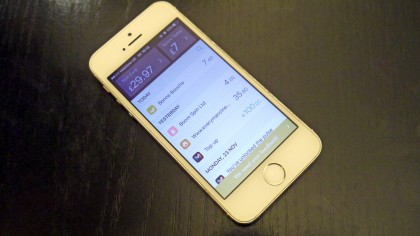
"I've met people whose title is "Head of Innovation", and whose focus was on anything new and shiny – Bitcoin, Apple Watch, etc... [they're] paid to come up with great new ideas," he says.
"But the compliance and risk teams are paid to shoot those ideas down. So very quickly you reach this stalemate where banks have loads of great ideas and implement none of them. The innovation team get their bonuses, the risk team get their bonuses and nothing changes."
Hacking the bank
It's hard to imagine a bank holding a hackathon to get developers to add new features to the platform - a recent event brought 50 such coders in, and created projects like a 3D map of where a night out took you based on transactions or scraping loyalty cards to instantly show the balance of your Nectar account when you shop at Sainsbury's.
It's publishing the APIs needed to start coding for the platform, so developers can get their hands on them and start creating more innovative ways to see our transactions.
But even the word hackathon leads to big questions of security: how do you convince users to trust a new bank enough to switch their current account, and with it control of a key part of their life? What if those APIs can be used to secretly steal your cash? Mondo feels more like a clever app than a bank, which will inevitably lead to worries about hacking and theft.
Questions about customer support, security and long-term viability of a financial service obviously circle as well, but Nicholson states that these are all covered in the application for a banking license, needing to rigorously prove the robustness of the system in many ways before it's granted.
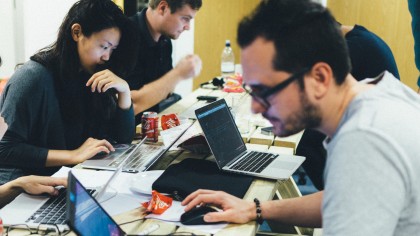
Nicholson admits security is "one of the most important issues we face as we're building this bank," but he's confident the regulatory hurdles Mondo needs to go through will ensure the security is up to scratch.
To many seeing this project for the first time, it's hard to work out how Mondo will convince people to 'try a bank'. Nicholson thinks its current scheme will be enough to get people started - while Mondo is still applying for a banking license, the only way to use it is by charging a pre-pay card with cash and connecting to that to an app.
Apparently the system takes 30 seconds to get into, and you can then instantly load your virtual card onto Apple or Samsung Pay. Then by using current technology users will be able to verify themselves to move towards an actual bank account - using biometrics like TouchID, selfies, voice recognition or even tapping your passport's NFC chip on an Android phone to prove you are who you say.
None of this is new though - the many outlets offer a fee-free travel card, Apple and Samsung Pay feature up to the minute transaction data and loads of other financial services have jumped on the smartphone bandwagon - Nicholson's view of banks as dusty, outdated services may be a bit harsh, especially since contactless payment has come to our smartphones.
But there's no bank that's bringing it all together in the way Mondo is, and even the questions about security and long term viability don't seem to have dampened Nicholson's enthusiasm for projects likes this, with over 17,000 signed up on the waiting list to be an alpha tester before Mondo launches (the aim is for this to be by early 2017, depending on license approval).
Nicholson admits that the relaxation of the licensing process means we'll have loads of other banks to choose from at the same time, so maybe we'll become as relaxed about our banking as we are with our privacy online, willingly jumping around to whichever service offers us the most benefit, feeling as safe as changing our phone contract, to see banking start offering the benefits these always-on pocket-dwellers can bring.

Gareth has been part of the consumer technology world in a career spanning three decades. He started life as a staff writer on the fledgling TechRadar, and has grew with the site (primarily as phones, tablets and wearables editor) until becoming Global Editor in Chief in 2018. Gareth has written over 4,000 articles for TechRadar, has contributed expert insight to a number of other publications, chaired panels on zeitgeist technologies, presented at the Gadget Show Live as well as representing the brand on TV and radio for multiple channels including Sky, BBC, ITV and Al-Jazeera. Passionate about fitness, he can bore anyone rigid about stress management, sleep tracking, heart rate variance as well as bemoaning something about the latest iPhone, Galaxy or OLED TV.